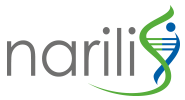Marielle Boonen
Biology of intracellular trafficking
Unravelling the underlying causes and consequences of lysosomal storage disorders and other lysosome-associated diseases
Prof. Marielle Boonen PhD
UNamur, Department of medicine, Molecular Physiology Research Unit (URPhyM), Laboratory of Intracellular Trafficking Biology (LBTI)
Research portal UNamur | ORCID | ResearchGate
Expertise and research interests
Prof. Marielle Boonen is leading a research group focusing on intracellular trafficking biology. She focuses in particular on lysosomes, acidified intracellular organelles containing close to 60 different acid hydrolases. This large arsenal of proteins assume the break-down of macromolecules delivered to the lysosomes by endocytosis or autophagy into primary components that can be recycled to the cytosol to re-enter biosynthetic reactions. This recycling function depends on the many transporters that are embedded in the limiting membrane of the lysosomes. When unable to degrade the macromolecules, or to translocate their degradation products to the cytosol, the abnormal accumulation of material in the lysosomes causes lysosomal and cellular dysfunctions. To date, approximately fifty lysosomal storage diseases have been reported, many of them characterized by neurodegeneration, severe organ failure, and premature death. Lysosomal alterations have also been associated with the negative evolution of other pathologies, including cancer, atherosclerosis, and Alzheimer’s and Huntington’s disease. Interestingly, increasing evidence point out that the lysosomes not only degrade macromolecules, but also control cell growth and survival by serving as signaling platforms.
The study of the underlying causes of lysosomal dysfunctions has pointed out that to maintain a well-oiled lysosomal machine and hence prevent deleterious cellular/tissue alterations, the cells must express all required lysosomal proteins and lysosomal-associated proteins but, most importantly, they also need to efficiently and specifically target them to the lysosomal compartment. To meet this second requirement, the cells rely on several intracellular trafficking machineries that transport newly synthesized lysosomal membrane or soluble proteins to their residence site within the cells.
In the lab, we are particularly interested in these transport mechanisms, as well as in the lysosomal functions in general. We notably use different models to study the underlying causes and consequences of lysosomal storage disorders and other lysosome-associated diseases, with a special focus on subcellular trafficking-related questions.
Group members
PhD students: Asena Aynaci, Thomas Jacqmin, Maxence Toussaint and François Van den Bossche
Research projects
- ONGOING Spastic Paraplegia protein 21 (Maspardin): a regulator of mTOR kinase at the lysosomal membrane? Ongoing PhD thesis by Thomas Jacqmin.
- ONGOING Mutations in the gene coding for GlcNAc-1-phosphotransferase: alteration of acid hydrolase trafficking in uterine cancer cells and consequences on cell aggressiveness. Ongoing PhD thesis by Asena Aynaci. Under co-supervision by Prof. Marielle Boonen (promoter) and Prof. Michel Jadot (co-promoter).
- ONGOING Mutations in the gene coding for GlcNAc-1-phosphotransferase: alteration of acid hydrolase trafficking in breast cancer cells and consequences on cell aggressiveness. Ongoing PhD thesis by Maxence Toussaint. Under co-supervision by Prof. Marielle Boonen (promoter) and Prof. Michel Jadot (co-promoter).
- ONGOING Structural and functional characterization of the lysosomal protein SLC35F6. Ongoing PhD thesis by François van den Bossche. Under co-supervision by Prof. Michel Jadot (promoter) and Prof. Marielle Boonen (co-promoter).
- ONGOING The lysosomal hydrolase HYAL1, an actor of bone remodeling? Research collaboration between Prof. Michel Jadot, Prof. Marielle Boonen, Prof. Bruno Flamion, and Prof. Jean-Michel vandeweerd.
- ONGOING Subcellular proteomics. Research collaboration between UNamur (Prof. Marielle Boonen & Prof. Michel Jadot) and Center for Advanced Biotechnology and Medicine, New Jersey, USA (Dr. Abla Tannous, Dr. David Sleat and Prof. Peter Lobel).
- ONGOING Is a trafficking defect between endolysosomes and lysosomes the underlying cause of spastic paraplegia 21? Ongoing project under co-supervision by Prof. Marielle Boonen and Prof. Michel Jadot.
- Study of the subcellular localization of the human ATP-binding cassette transporter isoform, ABCB5β, expressed in melanoma. PhD thesis defended by Adriana Diaz on 27/10/2023. Under co-supervision by Prof. Jean-Pierre Gillet (promoter) and Prof. Marielle Boonen (co-promoter).
- Expression, subcellular trafficking and role of Hyal-1, an extracellular matrix degrading enzyme, in invasive breast cancer. Doctoral research by Céline Bidron. Under co-supervision by Prof. Marielle Boonen (promoter) and Prof. Bruno Flamion (co-promoter).
Selected publications
Jacqmin T, Gilis F, Albert M, Gaussin JF, Jadot M, Boonen M. Maspardin/SPG21 controls lysosome motility and TFEB phosphorylation through RAB7 positioning. J Cell Biol. 2026 Feb 2;225(2):e202501135.
Aynaci A, Toussaint M, Gilis F, Albert M, Gaussin JF, Jadot M, Boonen M. Disruption of Man-6-P-Dependent Sorting to Lysosomes Confers IGF1R-Mediated Apoptosis Resistance. Int J Mol Sci. 2025 Apr 10;26(8):3586.
Van den Bossche F, Tevel V, Gilis F, Gaussin JF, Boonen M, Jadot M. Residence of the Nucleotide Sugar Transporter Family Members SLC35F1 and SLC35F6 in the Endosomal/Lysosomal Pathway. Int J Mol Sci. 2024 Jun 18;25(12):6718.
Puissant E, Gilis F, Tevel V, Vandeweerd JM, Flamion B, Jadot M, Boonen M. Hyaluronidase 1 deficiency decreases bone mineral density in mice. Sci Rep. 2022 Jun 16;12(1):10142.
Tannous A, Boonen M, Zheng H, Zhao C, Germain CJ, Moore DF, Sleat DE, Jadot M, Lobel P. Comparative Analysis of Quantitative Mass Spectrometric Methods for Subcellular Proteomics. J Proteome Res. 2020 Mar 5.
Jadot M, Boonen M, Thirion J, Wang N, Xing J, Zhao C, Tannous A, Qian M, Zheng H, Everett JK, Moore DF, Sleat DE, Lobel P. Accounting for Protein Subcellular Localization: A Compartmental Map of the Rat Liver Proteome. Mol Cell Proteomics. 2017 Feb;16(2):194-212.
Boonen M, Staudt C, Gilis F, Oorschot V, Klumperman J, Jadot M. Cathepsin D and its newly identified transport receptor SEZ6L2 can modulate neurite outgrowth. J Cell Sci. 2016 Feb 1;129(3):557-68.
Staudt C, Puissant E, Boonen M. Subcellular Trafficking of Mammalian Lysosomal Proteins: An Extended View. Int J Mol Sci. 2016 Dec 28;18(1).
Puissant E, Gilis F, Dogné S, Flamion B, Jadot M, Boonen M. Subcellular trafficking and activity of Hyal-1 and its processed forms in murine macrophages. Traffic. 2014 May;15(5):500-15.
 NAmur Research Institute for LIfe Sciences
NAmur Research Institute for LIfe Sciences


